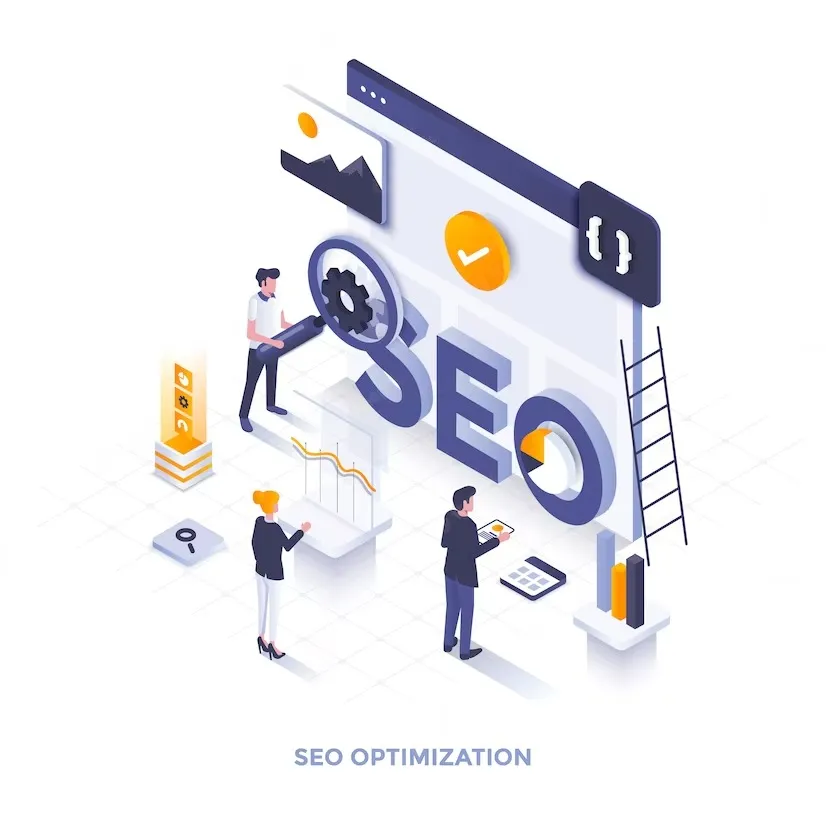Search engine optimization (SEO) is an ever-evolving area of digital marketing that can be a challenge to keep up with. As search engines become more sophisticated, the way we optimize content must also evolve. This is where semantic SEO comes in. Semantic SEO is about understanding the meaning behind the words and phrases used in content, rather than relying solely on keywords and phrases.
By understanding the context and semantics of search queries, you can create content that is more relevant to users and more likely to appear in search engine results. In this blog post, we will explore the concept of semantic SEO and discuss how this knowledge can inform content creation and optimization. Join us as we delve beyond keywords and into the realm of contextual understanding, to uncover the potential of semantic SEO!

What is Semantic SEO?
Semantic SEO is a new and powerful approach to search engine optimization that goes beyond traditional keyword targeting. It focuses on understanding the meaning and context of search queries, allowing us to create more relevant and meaningful content.
Unlike traditional SEO, which relies heavily on keywords and phrases, semantic SEO considers the relationship between words and phrases, as well as the intent behind them. This means that search engines can better understand the content and deliver more accurate results to users.
In semantic SEO, we move away from simply optimizing for specific keywords and instead focus on optimizing for concepts and topics. By doing so, we can create content that not only ranks well in search engine results but also resonates with our target audience.
Elevating SEO with Semantics: A Holistic Approach to Content and Value Creation
With semantic SEO, we are able to provide more value to users by addressing their specific needs and providing comprehensive information. It allows us to create a more holistic approach to content creation and optimization, which can result in higher visibility, increased traffic, and ultimately, better conversions.
In this blog post, we will dive deep into the concept of semantic SEO and explore how it can inform our content creation and optimization strategies. So join us as we unlock the potential of semantic SEO and go beyond keywords to truly understand the meaning behind search queries.

Understanding Context and Meaning in Search
Understanding context and meaning in search is crucial for effective semantic SEO. When users search for information online, they often provide search engines with limited context, such as a few keywords or a short phrase. It is our job as content creators and SEO strategists to fill in the missing pieces and understand what users are really looking for.
By analyzing search queries and examining search intent, we can gain insight into the context and meaning behind the words and phrases users use. This allows us to create content that not only matches the keywords but also addresses the underlying intent.
Context can be determined by looking at factors such as location, device used, and previous search history. By understanding these factors, we can tailor our content to better meet the needs of our target audience. For example, if someone is searching for “best restaurants,” knowing their location can help us provide more relevant results.
Unlocking User Intent: Creating Value-Centric Content with Semantic SEO
Additionally, understanding the meaning behind search queries enables us to create comprehensive and helpful content. Rather than simply focusing on keyword density, we can provide information that answers the user’s questions and provides value.
Overall, understanding context and meaning in search allows us to optimize our content in a way that resonates with users, improves search engine rankings, and ultimately drives more traffic to our websites. So, let’s dive deeper into how search engines interpret content and discover the role of entity optimization in semantic SEO.

How Search Engines Interpret Content
Search engines play a vital role in the world of SEO, as they are responsible for analyzing and interpreting the vast amount of content available online. But have you ever wondered how search engines actually interpret content? How do they determine which websites to display for a given search query? In this section, we will delve into the inner workings of search engines and uncover how they interpret content.
Search engines use sophisticated algorithms to crawl, index, and rank websites based on various factors. When a user enters a search query, the search engine aims to provide the most relevant and useful results. To achieve this, search engines analyze multiple elements of a webpage, including its content, structure, and relevance to the search query.
Beyond Keywords: Navigating the Nuances of Semantic SEO for Content Excellence
One key factor that search engines consider is the presence and density of relevant keywords within the content. However, simply stuffing your content with keywords is not enough. Search engines have evolved to understand the context and meaning behind the words and phrases used.
For example, if a user searches for “best running shoes,” search engines will not only look for webpages that mention the exact phrase “best running shoes,” but also pages that provide comprehensive information about running shoes, their features, and reviews. Search engines have become more adept at understanding the intent behind a search query, and they aim to deliver the most helpful and relevant content to users.

Beyond Keywords: The Multifaceted World of Modern SEO Ranking Factors
In addition to analyzing content, search engines also take into account other factors such as the authority and trustworthiness of a website, user engagement metrics, and the overall user experience. These factors help search engines determine the credibility and quality of a webpage, and they play a significant role in ranking decisions.
So, as content creators and SEO strategists, it is crucial for us to understand how search engines interpret content. By creating high-quality, informative, and relevant content that aligns with the intent behind search queries, we can improve our chances of ranking higher in search engine results.
In the next section, we will explore the role of entity optimization in semantic SEO and how it can further enhance our understanding of search engine interpretation. Stay tuned!
The Role of Entity Optimization in Semantic SEO
Entity optimization plays a crucial role in semantic SEO by helping search engines understand the context and meaning of content. In the world of SEO, an entity refers to a specific person, place, thing, or concept that is represented on the internet. By optimizing entities, we can provide search engines with more comprehensive information about our content, making it easier for them to interpret and rank our webpages.
To optimize entities, we can use structured data markup, such as schema.org markup. This markup provides search engines with additional context about the entities mentioned in our content, including their type, attributes, and relationships. For example, if we mention a specific product, we can use schema markup to provide details such as its price, availability, and customer reviews. This not only helps search engines understand the content better but also allows them to display more relevant and detailed information in search results.
Entity optimization also helps improve the user experience. By providing search engines with more structured and detailed information, we can enhance the way our content is displayed in search results. This can lead to higher click-through rates and increased user engagement with our webpages.

Using Schema Markup for Better Semantic SEO
In our quest to optimize content for semantic SEO, one powerful tool that can significantly enhance our efforts is schema markup. Schema markup is a structured data markup that provides search engines with additional context and information about the entities mentioned in our content. By incorporating schema markup into our webpages, we can make it easier for search engines to understand and interpret our content, ultimately improving our chances of ranking higher in search engine results.
Schema markup allows us to provide search engines with detailed information about entities such as products, recipes, events, and more. This additional information helps search engines display more relevant and comprehensive results to users. For example, if we are a recipe website and we use schema markup to provide details about the ingredients, cooking time, and nutritional information, search engines can display rich snippets in search results that include these details. This can help users quickly assess whether a recipe meets their specific dietary requirements or preferences.
Elevating User Experience and Click-Through Rates with Schema Markup
By implementing schema markup, we not only enhance search engine interpretation of our content but also improve the user experience. Schema markup allows our content to stand out in search results, providing users with more information before they even click on our webpage. This can lead to higher click-through rates and increased engagement with our content.
Implementing schema markup may seem daunting at first, but there are various tools and resources available to make the process easier. Google’s Structured Data Markup Helper is a great starting point, as it provides step-by-step instructions on how to implement schema markup on your webpages. Additionally, the schema.org website offers a comprehensive library of schemas that can be used to markup different types of content.










